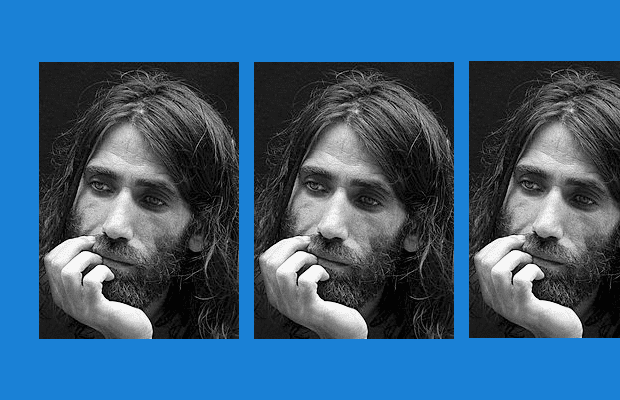I’ve been genuinely excited about this event since the program for the Sydney Writer’s Festival was first announced, but when I walked into the auditorium at Carriageworks on Friday night, the emotion in the room was palpable. It’s no surprise that this was one of the most anticipated events of this year’s festival, and it filled up in minutes. Only one seat sat empty, and that seat in the centre of the stage, next to translator Dr Omid Tofighian, was where Kurdish-Iranian author and journalist Behrouz Boochani should have sat. Instead, he skyped in from Port Moresby. It was the first time he had left Manus Island in six years.
This panel was so well done. It was informative, engaging, emotional, serious and funny all at once. The questions, posed by The Monthly’s US Correspondent Richard Cooke to both Behrouz and Omid, were poignant and all-too relevant.
Behrouz Boochani discussed the situation on Manus Island with thoughtful, inquisitive passion, yet he didn’t take himself too seriously. I wasn’t expecting to laugh nearly as much as I did, but he has a way of speaking about these issues that is at once urgent and without pressure.
In one moment, he was speaking passionately about the systematic censorship inherent to all parts of Australian life, and the impact of the dehumanising language in the media. In the next he stopped himself, laughing, and said, “Sorry. I think I talk too much.”
Behrouz spoke for the most part in English, but when he lost the words and broke into Farsi, the audience could hear his exhilarated sigh of relief, and we sighed with him.
Being part of this audience was an experience in itself. There was a collective humanity in the room that touched me; we shared both an anger at the situation on Manus and Nauru, and a drive to change it. At the end of the panel, refugees who now live in Australia spoke up and asked Behrouz their questions, and it was this point that made me realise just how important this man is to so many people. He represents not only those men, women and children kept prisoner on Manus and Nauru, but the fight for refugee rights everywhere.
One of the most important messages of the whole event was something that cannot be overstated, and Behrouz kept returning to it with every question that was asked. We cannot understand Manus, why the prisons exist, or why these people are locked up in horrific conditions, without first acknowledging our colonial roots. This systematic oppression that we see on Manus and Nauru has not emerged out of the blue; it is the result of a colonial mindset that was used to invade this country, and that has been allowed to flourish here since the eighteenth century.
I teared up in the standing ovation, and I know I wasn’t the only one. To listen to Behrouz Boochani speak of the experience of absolute oppression and suffocation inflicted on the prisoners on Nauru and Manus Island made me embarrassed to be Australian. But to see that his humour, and his positivity about our generation acknowledging these wrongs and doing things differently, were strong enough to survive this oppression, was truly inspiring.
When asked what we could do, Behrouz’ answer was pretty straightforward: “Bring down this government.”





